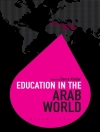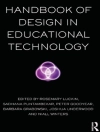Wide-ranging essays on intangible cultural heritage, with a focus on its negotiation, its value, and how to protect it.
Awareness of the significance of intangible cultural heritage (ICH) has recently grown, due to the promotional efforts of UNESCO and its
Convention for the Safeguarding of the Intangible Cultural Heritage (2003). However, the increased recognition of intangible heritage has brought to light its undervalued status within the museum and heritage sector, and raised questions about safeguarding efforts, ownership, protective legal frameworks, authenticity and how global initiatives can be implemented at a local level, where most ICH is located.
This book provides a variety of international perspectives on these issues, exploring how holistic and integrated approaches to safeguarding ICH offer an opportunity to move beyond the rhetoric of UNESCO; in partiular, the authors demonstrate that the alternative methods and attitudes that frequently exist at a local level can be the most effective way of safeguarding ICH. Perspectives are presented both from ‘established voices’, of scholars and practitioners, and from ‘new voices’, those of indigenous and local communities, where intangible heritage lives. It will be an important resource for students of museum and heritage studies, anthropology, folk studies, the performing arts, intellectual property law and politics.
Michelle Stefano is Folklorist-in-Residence, University of Maryland Baltimore County; Peter Davis is Professor of Museology, International Centre for Cultural and Heritage Studies, Newcastle University; Gerard Corsane is Senior Lecturer in Heritage, Museum and Galley Studies, International Centre for Cultural and Heritage Studies, School of Arts and Cultures, Newcastle University. Contributors: Marilena Alivizatou, Alissandra Cummins, Kate Hennessey, Ewa Bergdahl, George Abungu, Shatha Abu-Khafajah, Shaher Rababeh, Vasant Hari Bedekar, Christian Hottin, Sylvie Grenet, Lyn Leader-Elliott, Daniella Trimboli, Léontine Meijer-van Mensch, Peter van Mensch, Andrew Dixey, Susan Keitumetse, Richard Mac Kinnon, Alexandra Denes, Christina Kreps, Harriet Deacon, D. Jared Bowers, Gerard Corsane, Paula Assuncao dos Santos, Elaine Müller, Michelle L. Stefano, Maurizio Maggi, Aron Mazel
Tabella dei contenuti
Touching the Intangible: an Introduction – Michelle L. Stefano and Peter Davis and Gerard Corsane
The Paradoxes of Intangible Heritage – Marilena Alivizatou
Memory, Museums and the Making of Meaning: a Caribbean Perspective – Alissandra Cummins
From Intangible Expression to Digital Cultural Heritage – Kate Hennessy
Conversation Piece: Intangible Cultural Heritage in Sweden – Ewa Bergdahl
Africa’s Rich Intangible Heritage: managing a continent’s diverse resources – George Abungu
The Silence of Meanings in Conventional Approaches to Cultural Heritage in Jordan: The Exclusion of Contexts and the Marginalisation of the Intangible – Shatha Abu-Khafajah
The Silence of Meanings in Conventional Approaches to Cultural Heritage in Jordan: The Exclusion of Contexts and the Marginalisation of the Intangible – Shaher Rababeh
Conversation Piece: Intangible Cultural Heritage in India – Vasant Hari Bedekar
Reflections on the implementation of the UNESCO 2003 Convention for the Safeguarding of Intangible Cultural Heritage in France – Christian Hottin
Reflections on the implementation of the UNESCO 2003 Convention for the Safeguarding of Intangible Cultural Heritage in France – Sylvie Grenet
Government and Intangible Heritage in Australia – Lyn Leader-Elliot and Daniella Trimboli
Proud to be Dutch? Intangible heritage and national identity in the Netherlands – Leontine Meijer Van Mensch and Peter Van Mensch
Intangible Cultural Heritage in Wales – Andrew Dixey
Conversation Piece: Intangible Cultural Heritage in Botswana – Susan Keitumetse
The UNESCO Convention for the Safeguarding of Intangible Cultural Heritage and its Implications for Sustaining Culture in Nova Scotia – Richard Mac Kinnon
Acquiring the Tools for Safeguarding Intangible Heritage: Lessons from an ICH Field School in Lamphun, Thailand – Alexandra Denes
Intangible Threads: Curating the Living Heritage of Dayak Ikat Weaving – Christina Kreps
Conversation Piece: Intangible Cultural Heritage in South Africa – Harriet Deacon
Revitalising Amerindian Intangible Cultural Heritage in Guyana and its value for Sustainable Tourism – D Jared Bowers
Revitalising Amerindian Intangible Cultural Heritage in Guyana and its value for Sustainable Tourism – Gerard Corsane
When ICH takes hold of the local reality in Brazil: notes from the Brazilian State of Pernambuco – Paula Assuncao dos Santos
When ICH takes hold of the local reality in Brazil: notes from the Brazilian State of Pernambuco – Elaine Müller
Reconfiguring the Framework: Adopting an Ecomuseological Approach for Safeguarding Intangible Cultural Heritage – Michelle L. Stefano
Conversation Piece: Intangible Cultural Heritage in Italy – Maurizio Maggi
Looking to the future: the
en-compass project as a way forward for safeguarding Intangible Cultural Heritage – Gerard Corsane
Looking to the future: the
en-compass project as a way forward for safeguarding Intangible Cultural Heritage – Aron Mazel
List of Contributors
Circa l’autore
Peter Davis is Emeritus Professor of Museology in the School of Arts and Cultures at Newcastle University, UK. His research interests relate to the connections between place, nature, heritage, communities and sustainability.












